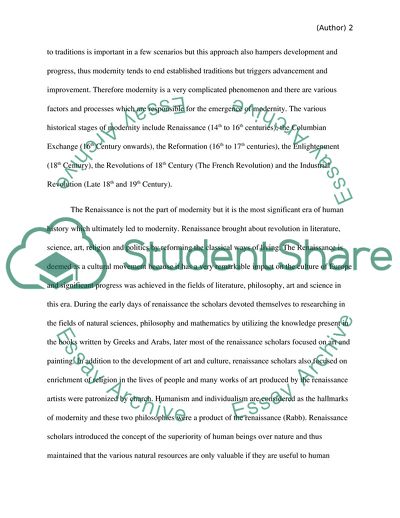Cite this document
(Emergence of Modernity: An Analysis of the Historical Processes Involved Report Example | Topics and Well Written Essays - 2250 words, n.d.)
Emergence of Modernity: An Analysis of the Historical Processes Involved Report Example | Topics and Well Written Essays - 2250 words. https://studentshare.org/sociology/1757441-provide-an-in-depth-explanation-of-which-historical-processes-led-to-the-emergence-of-modernity
Emergence of Modernity: An Analysis of the Historical Processes Involved Report Example | Topics and Well Written Essays - 2250 words. https://studentshare.org/sociology/1757441-provide-an-in-depth-explanation-of-which-historical-processes-led-to-the-emergence-of-modernity
(Emergence of Modernity: An Analysis of the Historical Processes Involved Report Example | Topics and Well Written Essays - 2250 Words)
Emergence of Modernity: An Analysis of the Historical Processes Involved Report Example | Topics and Well Written Essays - 2250 Words. https://studentshare.org/sociology/1757441-provide-an-in-depth-explanation-of-which-historical-processes-led-to-the-emergence-of-modernity.
Emergence of Modernity: An Analysis of the Historical Processes Involved Report Example | Topics and Well Written Essays - 2250 Words. https://studentshare.org/sociology/1757441-provide-an-in-depth-explanation-of-which-historical-processes-led-to-the-emergence-of-modernity.
“Emergence of Modernity: An Analysis of the Historical Processes Involved Report Example | Topics and Well Written Essays - 2250 Words”. https://studentshare.org/sociology/1757441-provide-an-in-depth-explanation-of-which-historical-processes-led-to-the-emergence-of-modernity.


